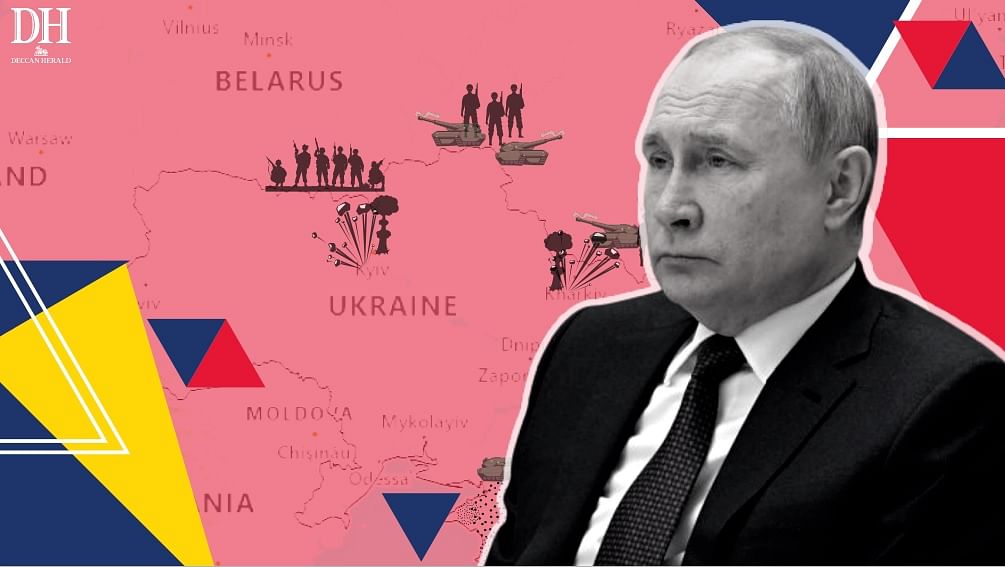
The International Criminal Court's chief prosecutor said Wednesday an active probe into possible war crimes in Ukraine "will immediately proceed" after his office received the backing of 39 countries.
Though ICC, which judicially prosecutes offenses of war crimes among others, has taken cognisance of the crisis in Ukraine, war crimes are often extremely complicated and difficult offenses to prove. Besides, Russia is not a member of the ICC and that further raises questions around jurisdictions.
As a week has passed since Russian President Vladimir Putin ordered a "special military operation" in Ukraine, seen as a full-scale invasion, hundreds of civilians have been killed in Russian military attacks, which range from missile attacks to destructive shelling. Many Ukrainian cities have been reduced to dust and rubble after coming under heavy attacks on buildings, which include apartment complexes and government buildings. Ukrainian President Volodymyr Zelenskyy, along with UK's Boris Johnson, has accused Russia of committing war crimes.
Russia is not a member of the ICC
The Hague-based ICC was established in 2002 as an independent court to try individuals accused of genocide, war crimes and crimes against humanity. The ICC, however, can only prosecute crimes committed on the territory of its 123 member states.
Ukraine is not a party to the Rome Statute of the ICC, but it has twice accepted the court’s jurisdiction over any international crimes committed in its territory. This could include offences committed by pro-Russian separatists or Russian or Ukrainian military forces.
Moscow withdrew from the ICC, so the court will only be able to reach Russians if they are arrested on the territory of a state that respects the jurisdiction of the court. The ICC is also hampered by the fact that it has no police force and relies on state parties to detain suspects -- with varying success in the past.
International law prohibits indiscriminate attacks. These could include using certain weapons against military targets in dense urban areas, such as artillery, cluster munitions or thermobaric “vacuum” bombs, whose wide effects also risk hitting civilians. Russian troops have already been accused of using cluster munitions and vacuum bombs in civilian areas in Ukraine.
However, the ICC does not have jurisdiction over the international crime of aggression – that is, to prosecute Russia’s unlawful attack on Ukraine.
Ukraine has made a claim with the International Court of Justice that Russia is invading on the pretext of stopping genocide by Ukraine, but this is a speculative gambit. And the ICJ does not have jurisdiction to directly hear any claim that Russia is committing aggression.
So, can Putin be put on trial and arrested?
Unlikely.
Realistically, it is unlikely that many prosecutions will happen – if any at all. For one, establishing which Russian military or political leaders are responsible for specific crimes will be complex and difficult. Then, arresting them in Russian-occupied territory, or obtaining their extradition from Russia, will be virtually impossible. The ICC has only convicted 10 people in two decades, despite the prevalence of international crimes in many conflicts.
At most, anyone ultimately indicted may think twice about travelling outside Russia or occupied Ukraine, as they could be arrested in 123 countries that are members of the court.
However, if Putin’s regime eventually fall, a new Russian government may be more open to seeking justice for the past. Collecting and preserving evidence is therefore essential for any future accountability efforts.
(With inputs from agencies)
Check out DH's latest videos